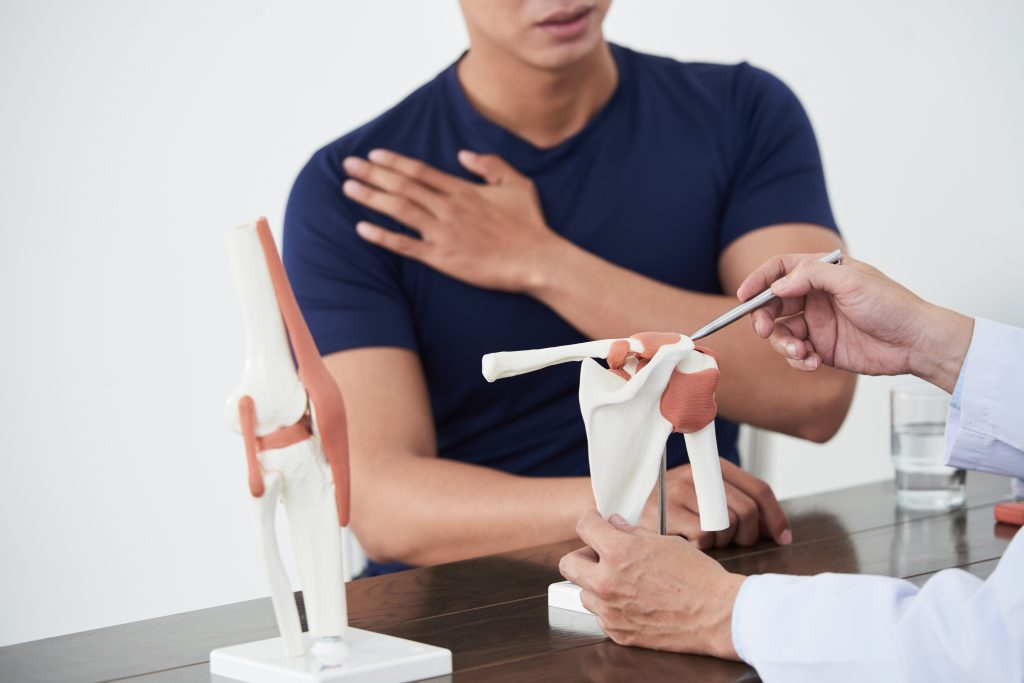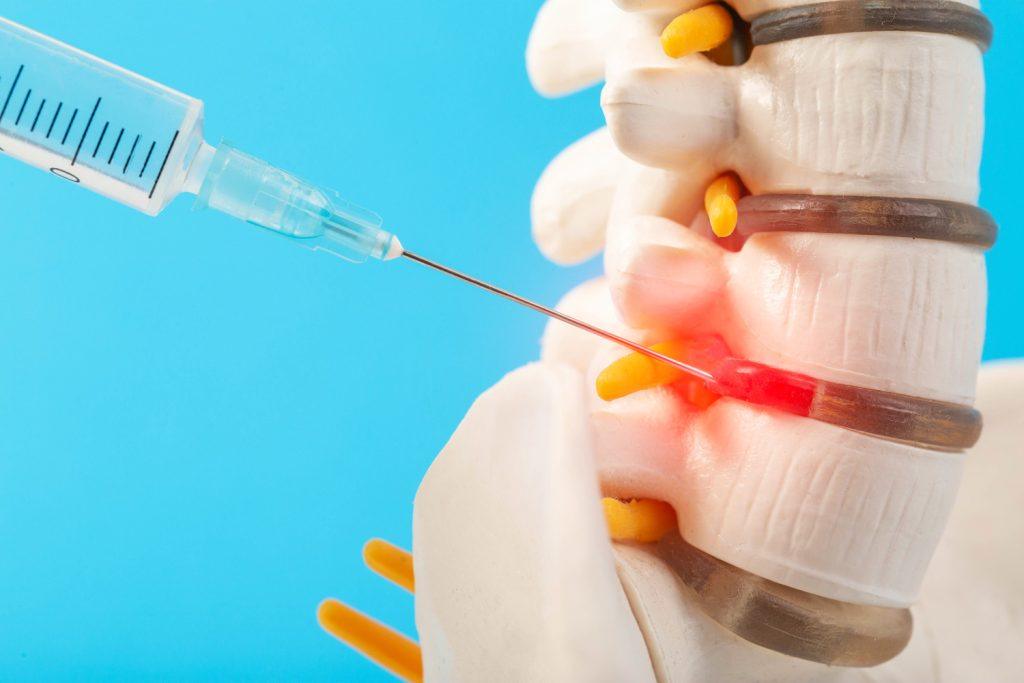Navigating Shoulder Surgery: What to Expect Before, During, and After

Prepare yourself for shoulder surgery by learning about the process from start to finish. This guide covers everything from the reasons for surgery to the various procedures and recovery steps. By understanding what to expect beforehand, during, and after the procedure, you can approach it with less anxiety and more confidence. Let’s embark on this journey through the world of shoulder surgery together.
How to Prepare for Shoulder Surgery?
Preparing for shoulder surgery involves a thorough pre-operative assessment to evaluate your health, discuss anesthesia options, and plan the procedure. Medical professionals gather information about your medical history, medications, allergies, and health conditions to customize the surgery. Anesthesia choices, such as general or regional anesthesia, are explained. You may need to adjust medications or diet before surgery to minimize risks.
What Tests or Exams Are Required Before Surgery?
Before shoulder surgery, various tests and examinations are conducted to assess the shoulder’s condition and overall health and ensure the appropriateness of the procedure. X-rays, MRI scans, and ultrasounds are standard diagnostic tools to evaluate bone structures, soft tissues, and joint mobility. Blood tests and electrocardiograms may also be performed to check for underlying medical conditions and assess heart function.
A physical examination, including a range of motion and strength assessments, helps identify any issues requiring attention before surgery.
What Medications Should Be Avoided Before Surgery?
Before shoulder surgery, it’s vital to avoid specific medications and supplements that could interfere with the surgical process and healing afterward. Blood thinners such as aspirin, clopidogrel, and warfarin can increase bleeding during surgery, potentially leading to complications like excessive blood loss.
Herbal supplements like ginkgo biloba, garlic, and ginger should also be avoided due to potential interactions with anesthesia and medications, which could cause complications during the procedure. Following the prescribed medication regimen strictly is crucial for a successful surgery.
What Should Be Done to Prepare the Shoulder for Surgery?
Preparing the shoulder for surgery involves marking precise incisions and access points on the skin, ensuring optimal positioning and access for the surgical team. Before the procedure begins, the team evaluates the shoulder area to determine the best incision sites, considering anatomical landmarks and imaging techniques.
Accurate placement of incisions minimizes tissue damage and ensures efficient visualization during surgery. Factors like nerve pathways and vascular structures are considered to prevent complications.
What Happens During Shoulder Surgery?
During shoulder surgery, the patient is prepared in the operating room while the surgical team readies. Different tissue repair techniques are applied based on the specific shoulder condition. Once in the operating room, the patient is positioned on the surgical table, and the affected shoulder is exposed and prepped.
Anesthesia is administered for comfort. Precise incisions are made to access the damaged area. Arthroscopic surgery, using small tools and a camera through tiny incisions, may be employed for minimally invasive procedures, allowing visualization and repair of shoulder structures.
What Types of Anesthesia Are Used?
Shoulder surgery offers different anesthesia options: general, regional, or combination. General anesthesia induces unconsciousness, allowing the medical team to monitor vital signs closely. Regional anesthesia blocks sensations in a specific area, beneficial for post-surgery pain relief without general anesthesia’s side effects.
A combined approach may offer rapid-onset from general anesthesia and extended pain relief from regional anesthesia. The choice depends on the procedure and patient preferences.
What Are the Different Techniques Used in Shoulder Surgery?
Shoulder surgery employs various techniques tailored to the specific condition and surgical goals. Arthroscopic procedures, using a tiny camera called an arthroscope, offer minimal incisions, reducing recovery time and scarring. Open surgeries provide direct access to intricate repairs.
Tissue reconstruction methods utilize advanced technologies to restore damaged ligaments, tendons, or other shoulder structures. The choice of technique depends on the individual’s condition and surgical requirements.
How Long Does the Surgery Take?
The duration of shoulder surgery varies based on factors like procedure complexity and patient health. Arthroscopic surgery typically lasts 1-2 hours, while complex reconstructions may take longer. The extent of tissue repair, from simple rotator cuff fixes to intricate reconstructions, affects duration. Patient health and medical conditions also influence surgery length.
What to Expect After Shoulder Surgery?
After shoulder surgery, patients recover, focusing on pain management, rehabilitation, and restoring shoulder function. Understanding the recovery timeline is crucial. Initially, discomfort can be managed with prescribed medications, ice therapy, and elevation. Pain management supports recovery and patient comfort.
Rehabilitation programs aim to improve the shoulder’s flexibility, strength, and range of motion, promoting functional independence and preventing complications. Adhering to post-operative appointments and follow-up visits is essential for monitoring progress and addressing concerns. Effective communication with healthcare providers is critical for optimizing outcomes and facilitating recovery.
What Is the Recovery Process Like?
Recovery post-shoulder surgery involves specific rehabilitation exercises and physical therapy sessions to restore strength, flexibility, and range of motion.
Consistent engagement in these activities is vital for success. Exercises focus on improving muscle strength and flexibility around the shoulder joint. Physical therapy addresses pain management, inflammation reduction, and gradual range of motion increase.
Skills include shoulder stretches, rotator cuff strengthening, and scapular stabilization drills. Therapists may also use heat therapy or electrical stimulation to aid recovery, prevent stiffness, and promote functional independence.
What Activities Should Be Avoided After Surgery?
After shoulder surgery, patients are cautioned against certain activities, such as heavy lifting, overhead movements, and strenuous exercises, to avoid straining the shoulder.
Work restrictions may apply depending on occupation and the extent of the surgery. Avoiding sudden jerking motions or heavy resistance is crucial to prevent impeding healing or damaging the surgical site. Contact sports and high-impact activities are generally discouraged initially to avoid stress on the shoulder joint.
Gradual return to normal activities starts with gentle movements and strengthening exercises under a physical therapist’s guidance. Patients should adhere to recommended weight limits to prevent shoulder strain or tissue disruption.
What Are the Possible Complications of Shoulder Surgery?
While shoulder surgery is generally safe, it can cause potential complications like infection, nerve damage, or prolonged pain. Recognizing these risks and addressing concerns promptly is vital for optimal post-operative care. Infections may show as redness, swelling, or fever.
Nerve damage can cause tingling, numbness, or weakness. Persistent pain beyond recovery expectations could signal underlying issues like adhesive capsulitis or instability. Early detection of complications helps prevent long-term consequences.
How to Ensure a Successful Recovery?
Successful recovery after shoulder surgery hinges on diligent adherence to wound care instructions, medication regimen, and follow-up appointments. Consistency in post-operative care is vital for optimal healing. Wound care prevents infections and promotes proper healing by cleaning the incision area regularly and keeping it dry and covered.
Medication management is crucial for pain, inflammation reduction, and infection prevention. Following prescribed medications strictly is essential for a smooth recovery. Scheduled follow-up appointments allow healthcare professionals to monitor healing progress, address concerns, and adjust treatment plans, ensuring the patient’s path to full recovery.
What Dietary Changes Should Be Made?
Dietary changes after shoulder surgery may aid healing and overall recovery. Recommendations might include increased protein for tissue repair, hydration for optimal healing, and nutrient-rich foods to support recovery.
Anti-inflammatory foods like fruits, vegetables, and omega-3 fatty acids can reduce swelling and inflammation. Avoiding processed foods and excessive sugar is essential.
A dietitian can offer personalized guidance on supplements like vitamin D for bone health or collagen for connective tissue repair. Prioritizing whole foods and a balanced diet can optimize nutritional intake and improve post-surgical outcomes.
How to Manage Pain and Discomfort?
Managing post-operative pain and discomfort after shoulder surgery is crucial for patient comfort and recovery. This usually includes prescribed pain medications, ice therapy, and elevation to reduce soreness and swelling.
Additionally, physical therapy plays a vital role in enhancing mobility and reducing stiffness in the shoulder joint. Engaging in gentle exercises and range of motion activities with a trained therapist can prevent muscle atrophy and improve overall function.
Conclusion
In conclusion, shoulder surgery is a vital intervention for addressing shoulder issues and enhancing patients’ quality of life. Adhering to post-operative care instructions, attending follow-up appointments, and monitoring long-term outcomes are essential for a successful recovery. Post-surgical follow-up care is crucial for tracking healing progress, assessing shoulder function, and detecting complications early.
Consistency in follow-up appointments and rehabilitation exercises influences long-term outcomes. Active participation in recommended care and rehabilitation maximizes the chance of optimal recovery and long-term shoulder function.
Warning: urlencode() expects parameter 1 to be string, array given in /www/wwwroot/surgeryconsultantsofflorida.com/wp-includes/formatting.php on line 5693

